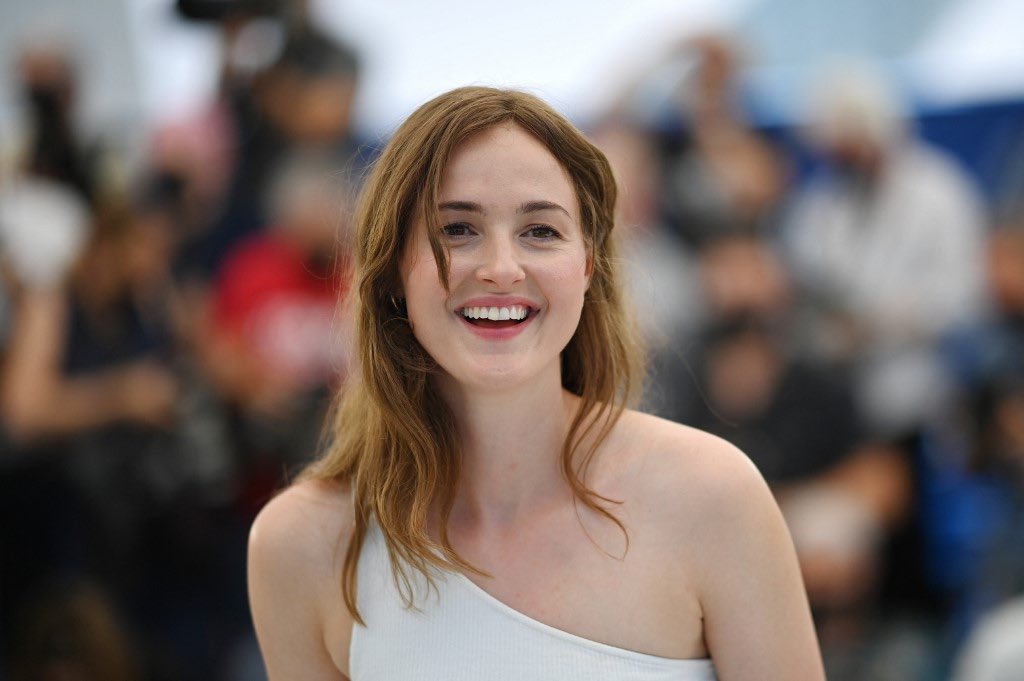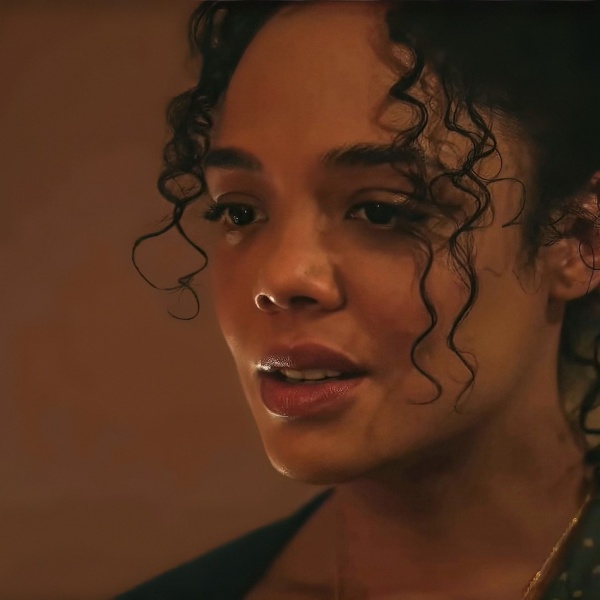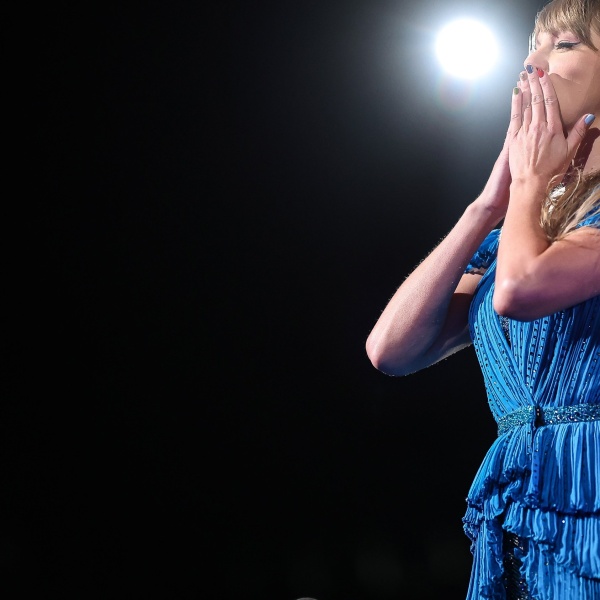Editor’s Note: This story contains spoilers for “A Different Man.”
Renate Reinsve seemingly had the world at her feet after her breakout performance in Joachim Trier’s millennial magnum opus “The Worst Person in the World.” Yet instead of joining a big-budget franchise in Hollywood, the Norwegian actress took a different career path. Reinsve stuck with boundary-pushing indies and opted for a scene-stealing supporting role in writer/director Aaron Schimberg‘s Sundance 2024 hit, “A Different Man.”
Reinsve plays Ingrid, an expat and recent New York transplant who moves in next door to Edward (Sebastian Stan), an actor who has neurofibromatosis causing facial disfigurement. While Ingrid seems to flirt with Edward, she still rebuffs his advances, in part leading Edward to undergo a medical procedure to drastically transform his appearance. An unrecognizable Edward sheds his skin (literally) and is reborn as “Guy,” telling Ingrid that Edward committed suicide to explain away his transformation. Ingrid then channels her grief and fetishized fascination with Edward into an off-Broadway play, and Guy is cast in the lead role — that is, until more established actor Oswald (Adam Pearson, an actor who himself has neuofibromatosis), a dead ringer for Edward, begins courting both the production and writer/director Ingrid herself.
“A Different Man” lead star Stan, who also executive produces the film, won the best actor award at Berlin. But it’s Reinsve who centers the darkly comedic tone of the critically acclaimed film, as Ingrid is the catalyst for Guy’s eventual unraveling.
And “A Different Man” is far from Reinsve’s only project in the works, despite it being her first post-“The Worst Person in the World.” Reinsve spoke with IndieWire while on location filming “Sentimental Value” in Norway. The film reunites Reinsve with “The Worst Person in the World” writer/director Trier, who was previously nominated for Best Original Screenplay along with co-writer Eskel Vogt at the 94th Academy Awards. The feature, which concluded Trier’s trilogy, was also up for Best International Feature.
Reinsve also may be back at the Academy Awards with the critically acclaimed Cannes film “Armand,” Norway’s 2025 Oscar submission.
Below, Reinsve returns to “A Different Man” to unpack that cringe sex scene with Guy, detail one “big fight” during production that turned into one of the film’s best jokes, and explain why she still empathizes with Ingrid despite the character being a “sociopathic” version of the manic pixie dream girl.
This interview has been edited for clarity.
Why did you select “A Different Man” to be your English debut?
Renate Reinsve: After “Worst Person in the World,” I was sent a lot of scripts. This was actually my first film after “Worst Person in the World.” It was the timing, and out of the scripts that I got at that time, this was the most interesting to me. It asked the most interesting questions thematically. I have been in love with the scripts of Charlie Kaufman since I discovered him when I was a teenager. I really was reminded a lot about that and then I talk[ed] to [writer/director] Aaron [Schimberg], because you never really know where the director wants the script to go.
But the funding is very different in America than in Norway. You get the part when you kind of already have the money. But in America, I was very confused. When I had the part, I didn’t know if it was going to be a project or not. I kind of waited a little bit with rehearsing because I didn’t really know what was going on. And then I think three weeks before it was like, “OK, go! It’s happening,” and then I had to learn my lines, and it was my first time in speaking English [for a role]. I was very, very, very nervous. I hadn’t been that nervous since I started acting.
This role is so different from “Worst Person” but both films are in talks with each other when it comes to portraying self-sabotage and wrestling with identity. While “A Different Man” was your first English-language film, it also seemed like your first fully comedic role. Did you approach it as a comedy, from the perspective of your character Ingrid?
Yeah, I think it was a very funny character, and she’s actually a little bit difficult because you don’t really know where she’s coming from. You don’t really know how to read her. In the beginning, she is the girl next door, but she has a longing for something. She’s searching for something, and she’s very ambitious. You have sympathy for her. And then when Edward dies, something changes in her, and she uses that as an opportunity to become a playwright and a director … Someone said she was a mix between a girl next door and a sociopath, and I love that.
I thought she was really funny, but also Aaron’s script was very funny, and he has a rhythm to it. [Co-star] Adam [Pearson] is really funny, and what Sebastian [Stan] does, it is really funny. And we were all in this absurd world where we didn’t know how it was going to turn out with this movie. We had a lot of fun with discovering and playing with these strange scenes with each other.

Do you think Ingrid always was a little bit of a sociopath, or did she just snap after Edward dies?
No, I think she always was, but she didn’t know yet. She has it in her. For me as an actor, I had to know that I had to link her two selves, even though in the script it is a very big shift. You also don’t see her transformation, which is hard for the audience. You can see that she asks Edward very bluntly about things, since she is not really scared of how she is perceived. Like, she asks him about his childhood and “What happened to you? What happened to your face?” but she knows she’s not supposed to. She has a mix between discovering all of these things so can she use it in her play, but she also has a lot of empathy. I think she actually falls in love with Edward, and that also makes a big shift for her because she loses someone that she didn’t dare to try to date because, in her world, it wasn’t the right thing to do and something else was expected from her. So she doesn’t go along with the feelings for Edward, and she uses his story in this kind of a strange way of trying to understand what happened.
The sequence where Guy is in Ingrid’s house and she has all these medical drawings felt like a big reveal for her character. I couldn’t tell if Edward inspired that, or if she already had a fetish for it. When she asks Guy to wear the mask, that was one of the most cringy scenes in the film. How did you understand what Ingrid’s motivations were in that moment?
For me, there was humor in it because she’s so in denial of being in love with Edward and not being honest with her emotions because of what is expected of her from herself and society. I think when she goes into that scene, she kind of loses herself. That scene where she asks Guy to wear the mask is very confusing for her, but she is very persistent and she thinks that she can be able to also fall in love with Guy even though it’s not doing enough for her. So she thinks maybe the mask will do something. But it’s not about that. It’s only actually about finding someone who’s right for you.
And in the taking of someone else’s story and making the script and doing all these things with the play is all because she is not in touch with her own emotions. And then when she meets Oswald, she kind of gets to become herself again. For me, that was the journey.
I loved watching Ingrid step into the director character, like with the scarves and how even she starts wearing costumes to rehearsal like she’s trying to dress up in what she thinks a director would wear. Were you drawing on any specific director tropes for those looks?
Actually, me and the costume designer had a very big fight over the scarves. Since it was my first film [in English], I tried to tell her that I felt so uncomfortable with these scarves. She really loved them, but I felt it was so hard to wear them. So we had this little discussion, and then I said, “OK, fine.” And I went to do the scene, and I came back to her, and I said, “No, I really can’t do the scene with the scarf. I feel so uncomfortable,” but she ended up winning. Then I used the scarves. I see now what it did with the character, but it was a big discussion about the scarves.
How did you view Ingrid’s arc, especially as the film spans decades?
It was a little bit hard to do a character in a film that jumps so much through time, and you don’t see the transformation happening but yet then you see that she has transformed. But the good thing about that is it can all happen in the mind of the audience. You kind of have to work out in your mind as an audience, like, what happened? I, of course, have my own story very specifically of what happened [between Ingrid and Oswald]. But it is hard to be on set and be in [such] different stages of their lives. I think we said they were like 50 or 60 years old in the restaurant at the end of the film. So it’s a big leap and big step. But that’s also really what I love about this film: it’s taken in so many directions, and then you kind of have to fill in the story a little bit yourself.
What was it like working with Sebastian and Adam, especially as Sebastian plays two roles in this?
They’re both really fantastic people. Sebastian had been tied to this project for a very long time. Even though I was very, very scared going into this, both Sebastian and Adam really welcomed me and took me in. I think also because of the shift in this character, I was also a little bit nervous to try to find it with someone I didn’t know at all, like with Sebastian … He was so grounded in what he did. It was really great to just find the scenes with him.
And with Adam, he’s maybe not as cocky as he is in this movie [as Oswald] in his real life, but I love his confidence and his playfulness. And every morning I would learn something new about Legos with him. He builds insane Legos. He has built a typewriter [with Legos] that can actually typewrite. Him and I had a really good time. We had this banter and chemistry on set. So especially with the last scene, we had so much fun and were trying to cut each other off.
Did you improvise any of those scenes with Adam, then?
[Writer/director] Aaron is very specific about the script and in his way of directing. We don’t improvise anything, and it’s all in one shot. So it’s very challenging, especially when it’s your first English-language movie. You have to practice it and then hope that you have a really good chemistry with your co-actors. It’s all about creating it together. But we had a lot of fun with these scenes that we had to kind of banter, both with Sebastian and with Adam.
I am actually so sad that I’m not traveling with Sebastian and Adam right now because they’re around, I see all of the photos, but since I’m shooting the next Joachim Trier movie [“Sentimental Value“] in Norway, I can’t go anywhere. I just really love hanging out with them, and we still talk all the time. We became really close after that shoot. I’m really sad not to be out promoting [“A Different Man”] but I get all their pictures of them being on the road.
“A Different Man” is now in theaters.




